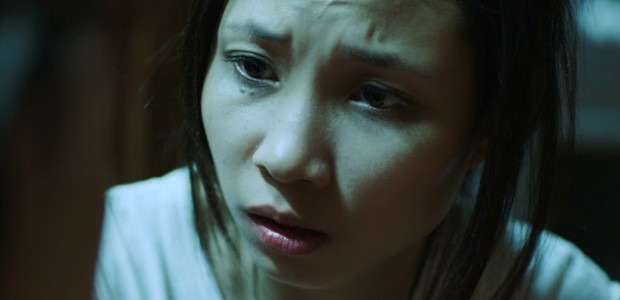DEAREST SISTER (Laos, 2016)
Writer/director Mattie Do understands how audiences watch movies. Over a century of films have trained us to sympathize with and get on the side of the first character to who we are introduced. Even if this character is not worthy of our sympathy, for some reason, we want to identify with them. Even better if that character is naïve or innocent, because we want to like them and protect them. In DEAREST SISTER, Do takes advantage of this desire to embrace a naïve lead character and turns the expectations we have as an audience on their head.
Nok (Amphaiphun Phommapunya) is a young woman from a rural village in Laos. At the beginning of the film, she is sent to live in the capital city of Vientiane for a year as a servant in the house of a cousin she has never met. As she leaves, her boyfriend bitterly comments that a year is plenty of time to find a “white husband.” These comments on class and racial differences are constantly weaved throughout the film.
Nok’s cousin is Ana (Vilouna Phetmany), a beautiful young woman who is losing her eyesight. Ana lives in a comfortable, upper class house with her husband Jakob (Tambet Tuisk). Jakob is a foreigner from somewhere in Europe. Harried, constantly on the phone, trying to put out various fires at work, he is alternately rude, charming, shady, and honestly in love with his wife. Whether Ana loves him is not the point. Do makes the point over and over that, in the current economic and political climate in Laos, if you are a young and attractive enough woman, your best bet at escaping poverty and a life of back-breaking labor is to marry a rich white man.
Also in the home are a couple of older servants who treat Nok with contempt. Coming from the same poor background as the new servant, they are angered by Jakob’s insistence that Nok be allowed to live inside the home, since she is family. Nok, for her part, is confused by the vitriol the other servants spit her way, but she is not about to turn down the creature comforts of a nice bed and air conditioning.
Intended to be Ana’s personal assistant, helping her get around the home and town as she goes completely blind, Nok is supposed to be sending money back to her poor family. Ana, for her part, does not want to be followed around by a distant family member she doesn’t know, but Jakob, constantly away for work, insists. But as the weeks go by, Ana finds herself becoming attached to Nok, relieved at finally having a confidante who understands her native culture.
Ana’s deteriorating eyesight comes with the odd side effect that she sees figures (they are never explicitly called ghosts) that are not there. Her doctors think it is her brain playing tricks on her, filling in the darkness with people she once saw. But Nok and Ana believe the figures to be something supernatural. It is when Ana goes into a trance and repeats random numbers told to her by the figures that Nok realizes she can turn the situation to her advantage. She takes the numbers that Ana repeated and plays the daily lottery, winning—what is to her—a massive sum of money.
Flush with cash, Nok starts splurging on things like a new phone and dress. But while she now needs Ana to keep having visions and providing her with numbers, Jakob gets word from a doctor in Thailand that Ana’s condition may be reversible. Having slowly revealed just how manipulative Nok can be to get Ana to provide her with numbers, it is startling when Do pushes a character who seemed so innocent into dark territory fed by greed and the economic inequality of the culture in which she lives.
DEAREST SISTER moves along at a leisurely pace that never feels like the movie is spinning its wheels. Do takes time to make sure the characters reveal all their strengths and weaknesses. Ana And Jakob are particularly fascinating. In a lesser film, Jakob would be a complete asshole and Ana would be a helpless victim. But here they are equally flawed and sympathetic. Even Nok, as unstable as she becomes, is less a villain and more just another victim of the culture of greed and strict class system in which she lives.
This is a very layered film. Even beyond the sticky relationships between the characters, DEAREST SISTER mines the material for culture clashes, the corruption inherent in a country with a totalitarian regime using capitalism to control the population, and a back and forth rejection and embrace of superstitions versus modern science. It’s a challenging and disquieting film, but very rewarding for horror fans looking for something chillier and more nuanced than a lot of genre fare at the moment.
Tags: Dearest Sister, Fantastic Fest


No Comments